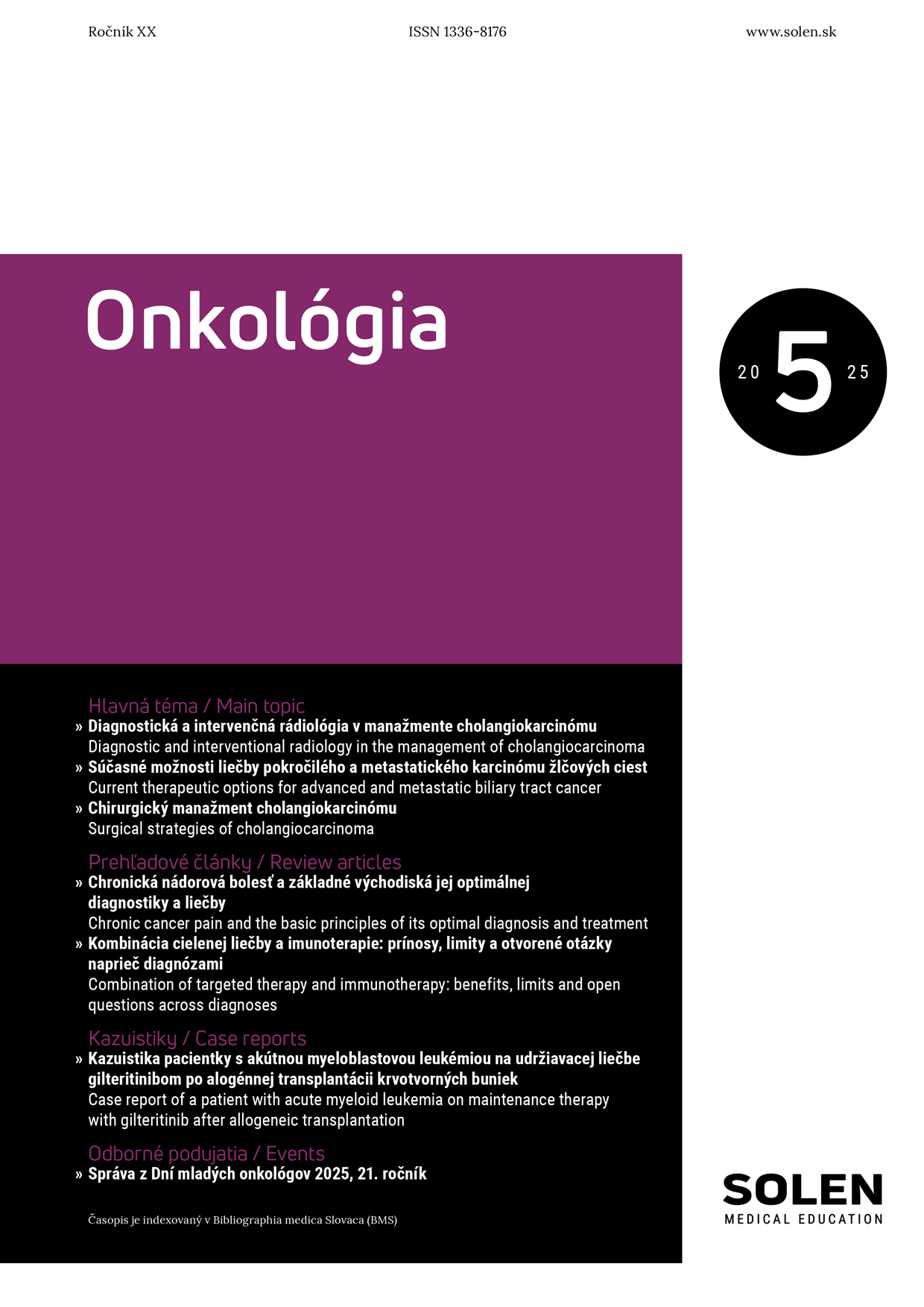Onkológia 4/2022
Immunotherapy and targeted treatment for metastatic, castration-resistant prostate cancer
Castration-resistant prostate cancer (CRPC) is less treatable in comparison to castration-sensitive disease. As part of efforts to improve the prognosis of patients with this disease, various gene aberations, that could be therapeutically utilized are under investigation. Immunotherapy and targeted therapy for gene aberations represent possible treatment options for patients with CRPC. Immunotherapy is so far approved for the treatment of microsatellite instable cancers (MSI-H), meanwhile the results of studies with anti-PD1 and anti-PD-L1, anti-CTLA-4 or their combination brought controversial data in biomarker-unspecified patients. PARP inhibitors for homologuous recombination (HR) mutated cancers is an important therapeutic option. From the personalized medicine armomentarium, some preliminary data show potential efficacy of blockade of the phosphatidylinositol-3-kinase pathway (PI3K) or in combination with androgen-deprivation therapy (ADT). The remaining problem is the low immunogenicity of prostate cancer, as well as low prevalence of actionable alterations. The aim of the article is to summarize evidence for efficacy and safety of immunotherapy and targeted therapy for patients with mCRPC.
Keywords: prostate cancer, mCRPC, immunotherapy, PARP inhibitors, AKT inhibitors

















